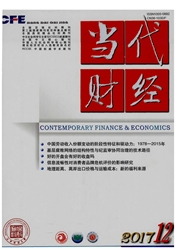

 中文摘要:
中文摘要:
根据最终控制性家族与上市公司核心业务及其经营行为的关系,可以将家族上市公司区分为企业家控制型(EFB)和资本家控制型(CFB)两个分样本。研究发现,两类家族企业的关联交易倾向存在显著差异:控制权配置形式倾向于复杂的金字塔结构的资本家控制型家族,通常以少量现金控制更多投票权,使控制权与现金流权尽可能偏离,以便于从事关联交易;而企业家控制型家族的这种倾向不明显。研究结果还表明,控制权与现金流权偏离程度大的CFB公司发生关联交易的规模和概率大于EFB公司。金字塔层级、控制权与现金流权偏离系数对关联交易有正向影响,大股东数量对其有负向影响;而第一大股东持股比例对两类样本的影响不同,即与EFB公司负相关,与CFB公司正相关。
 英文摘要:
英文摘要:
According to the relationship between the ultimate controlling family and the core busi- ness and its operating behavior of the listed companies, family-owned listed companies can be divided into two sample groups: the entrepreneur-controlled (EFB) and capitalist-controlled (CFB). The study found that there exist significant differences in the related transaction tendency of the two types of family businesses: the capitalist-controlled family business with a controlling right configuration in- clined to be a complex pyramid structure usually use less cash to control more voting fights, making the controlling fight deviating from cash flow right as far as possible, so as to be engaged in the re- lated transactions; while the entrepreneur-controlled family business doesn't have such obvious tenden- cy. The results also show that the size and probability of the occurrence of related transactions in CFB companies with larger degree of deviation between controlling right and cash flow right are greater than that in EFB companies. The pyramid hierarchy and the coefficient of deviation between controlling right and cash flow right have a positive influence on the related transactions, the number of major shareholders has a negative impact; while the share proportion of the largest shareholder has different impact on the two types of samples, i.e. negatively related with EFB companies and positive- ly related with CFB companies.
 同期刊论文项目
同期刊论文项目
 同项目期刊论文
同项目期刊论文
 期刊信息
期刊信息
